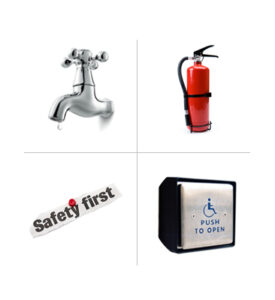The importance of regular risk assessments in a healthcare premises

Importance of risk assessment in healthcare
To ensure their patients safety and health during appointments, each practice has the duty of care to carry out risk assessments. Its purpose is to maintain safety and reduce accidents, injuries and identify faults. This process is also designed to protect the practice staff and to identify occasions when a risk assessment is necessary in health and social care. In fact, businesses with five or more employees are legally obliged under the Health and Safety At Work Act 1974 to carry out regular risk assessments.
Why are risk assessments important in health and social care?
To explain the importance of carrying out a risk assessment in health and social care, you need to know what is involved in the hazard analysis and what to look out for.
A thorough risk assessment in a hospital setting identifies hazards, which can be anything that’s likely to cause harm or illness. In a healthcare premises, hazards can range from slips, trips and fire, to electrical equipment, the chemicals used and even microbiological hazards.
Hospital Risk Assessment
One of the easiest ways to identify hazards is to walk round the practice, assessing potential areas of risk, evaluate the level of harm and if you can, remove it. If you can’t eliminate the hazard, define ways you can monitor and control it effectively.
Recording your findings on a data sheet is a vital part of the process. Every sheet requires the date of the assessment and you should keep documented copies for five years, so you can refer back to them. Each assessment should be shared with the relevant staff members, who should also date and sign it. This helps improve procedures and is key to training staff and enhancing service levels. It is important to use specialist expertise to assess risk and safety procedures, particularly in the case of legionella or fire safety.
A suitable risk assessment should demonstrate that a thorough check was made and that the practice involved those who might be affected. Key areas to consider are infection control and decontamination assessments, medications and equipment as well as general health and safety of the practice environment.
Benefits of risk assessment in health care
The risk assessment can help set new objectives amongst staff for improved procedures, create new policies and support practice protocols. New members of the team can be introduced to the practice systems during their induction. The aim is to improve consistency, promote quality assurance and guide them towards playing an integral role in maintaining the high standards expected within your healthcare premises.
